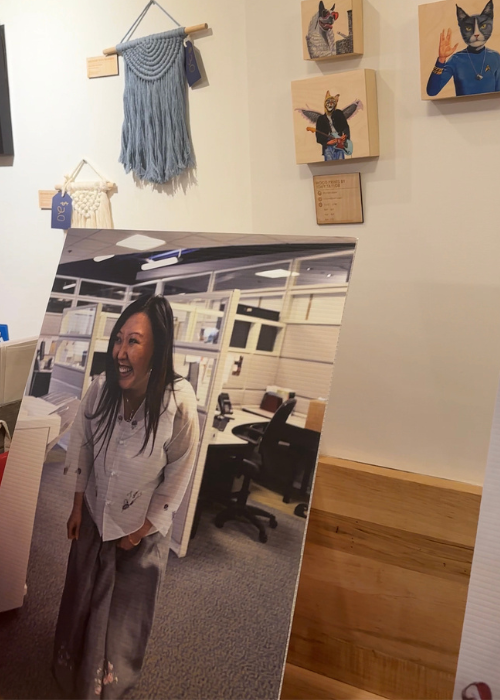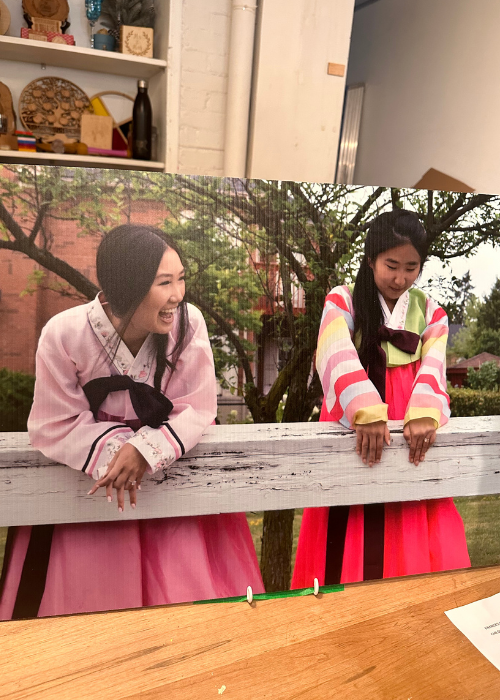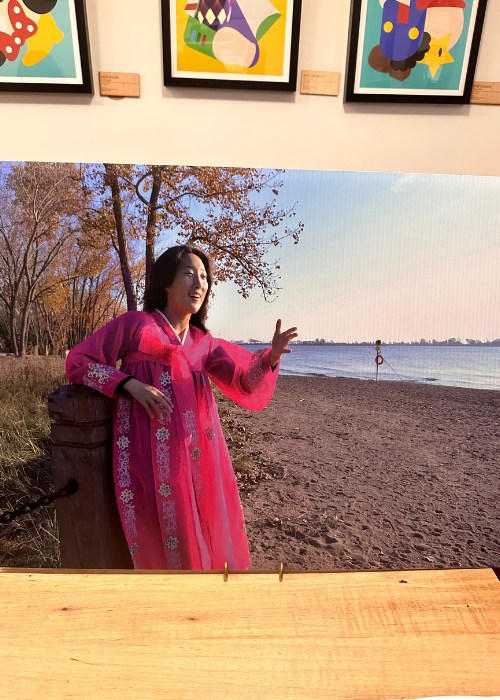- 한국어
- English
- 日本語
- 中文
- العربية
- Español
- Français
- Deutsch
- Pусский
- Tiếng Việt
- Indonesian
By Honorary Reporter Nina Laurence from France
Photos = Nina Laurence
I attended on April 25 "Dressed in Layers" in Toronto, Canada, a show featuring ethnic Koreans wearing Hanbok (traditional clothing) under a collaboration between Korean Canadians Erin Kang and Harriet Kim. This event showed the connections Koreans in the Great White North maintain between their country of residence and their motherland.
The show resonated deeply with me, touching on the universal immigrant experience of seeking a sense of identity. I marvel at the significance Koreans attach to their traditional items. For example, Hanbok is far much more than just clothing but rather an emblem of heritage designated National Intangible Cultural Heritage by the Cultural Heritage Administration.
The models, all dressed in Hanbok for the exhibition, attached interesting stories to their photos.

Ann Yu-kyung Choi
Ann Yu-kyung Choi said she came to appreciate Hanbok over time despite her initial struggle to embrace it, indicating a previous hesitation to accept her Korean roots. She said she wears Hanbok to sustain a connection with her Korean heritage while calling Canada home.

Claire Kim (left)
Claire Kim has fond childhood memories of wearing Hanbok at special events. Her relationship with the clothing has since significantly grown as a means to celebrate her cultural identity. Though Hanbok feels a bit distant since she seldom wears it and is from a bygone era, its beauty and relevance are preserved through distinct recollections.

Brittany Hae-mi Lee
Brittany Hae-mi Lee recalled wearing Hanbok for the first time at a middle school fashion show at the urging of her mother, saying showing her cultural identity at a tender age remained vivid in her mind. As she grew older, so did her desire to incorporate her cultural heritage. While contemplating what it means to be Korean, she values the sense of belonging whenever she visits her motherland.
All these stories struck a chord with my own immigrant experience, as I have limited opportunity to engage my West African cultural roots in Canada. While feeling no particular urge to express my heritage through traditional attire, I was also motivated to connect with my culture, which is forever part of me.
I also found incredibly insightful the diverse stories of the models, who shed light on their unique journeys as Koreans in a foreign land.
msjeon22@korea.kr
*This article is written by a Korea.net Honorary Reporter. Our group of Honorary Reporters are from all around the world, and they share with Korea.net their love and passion for all things.
